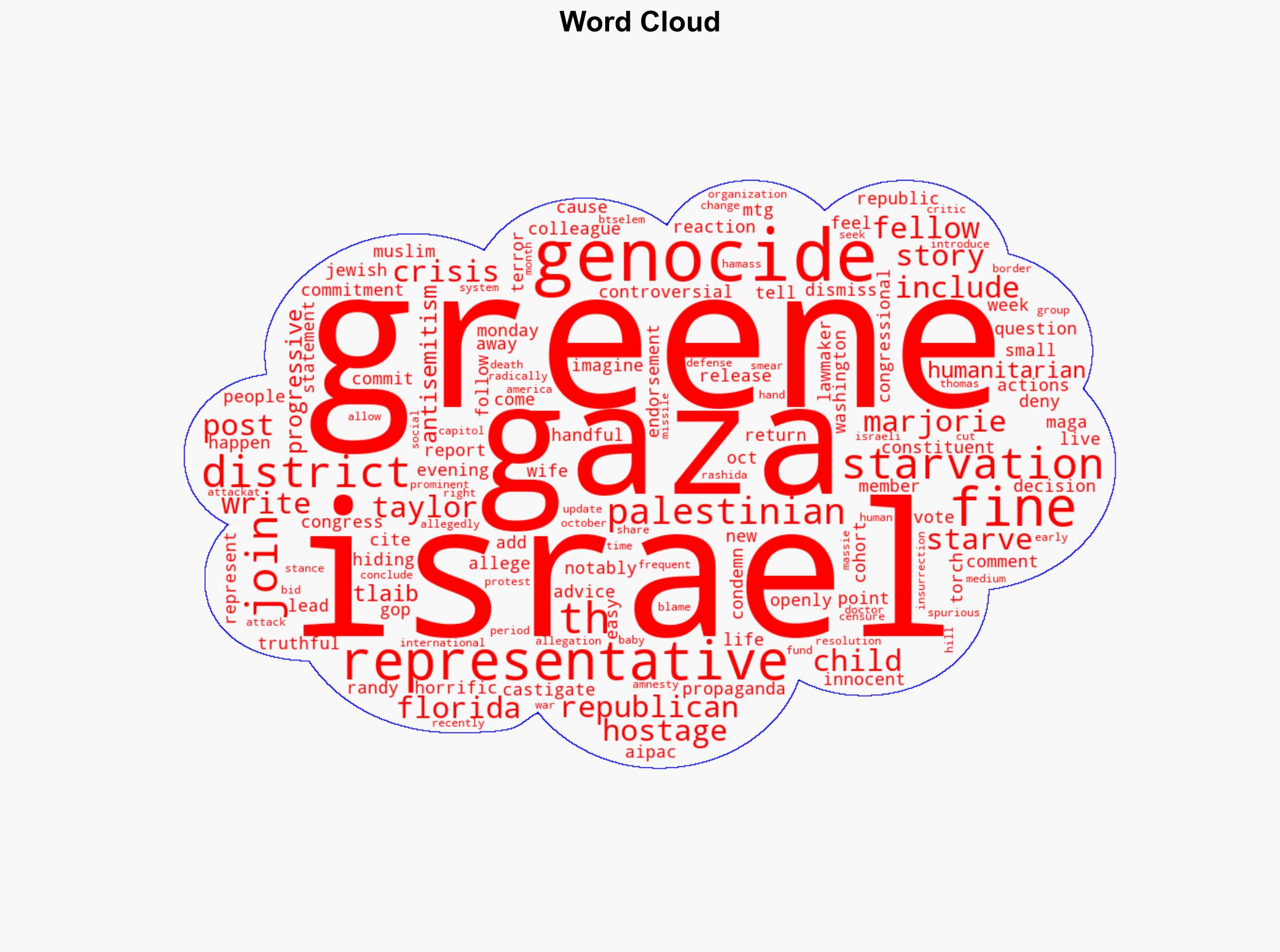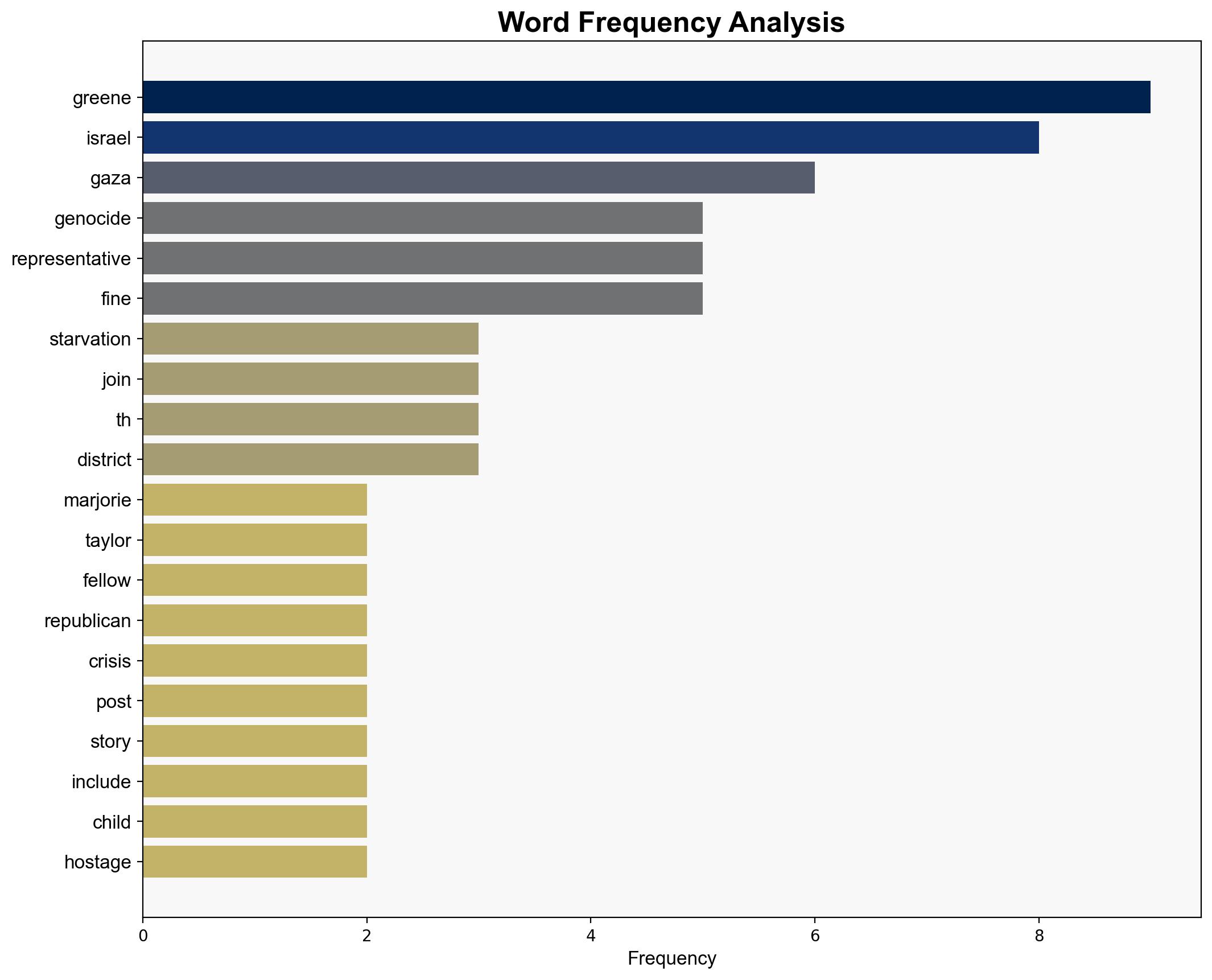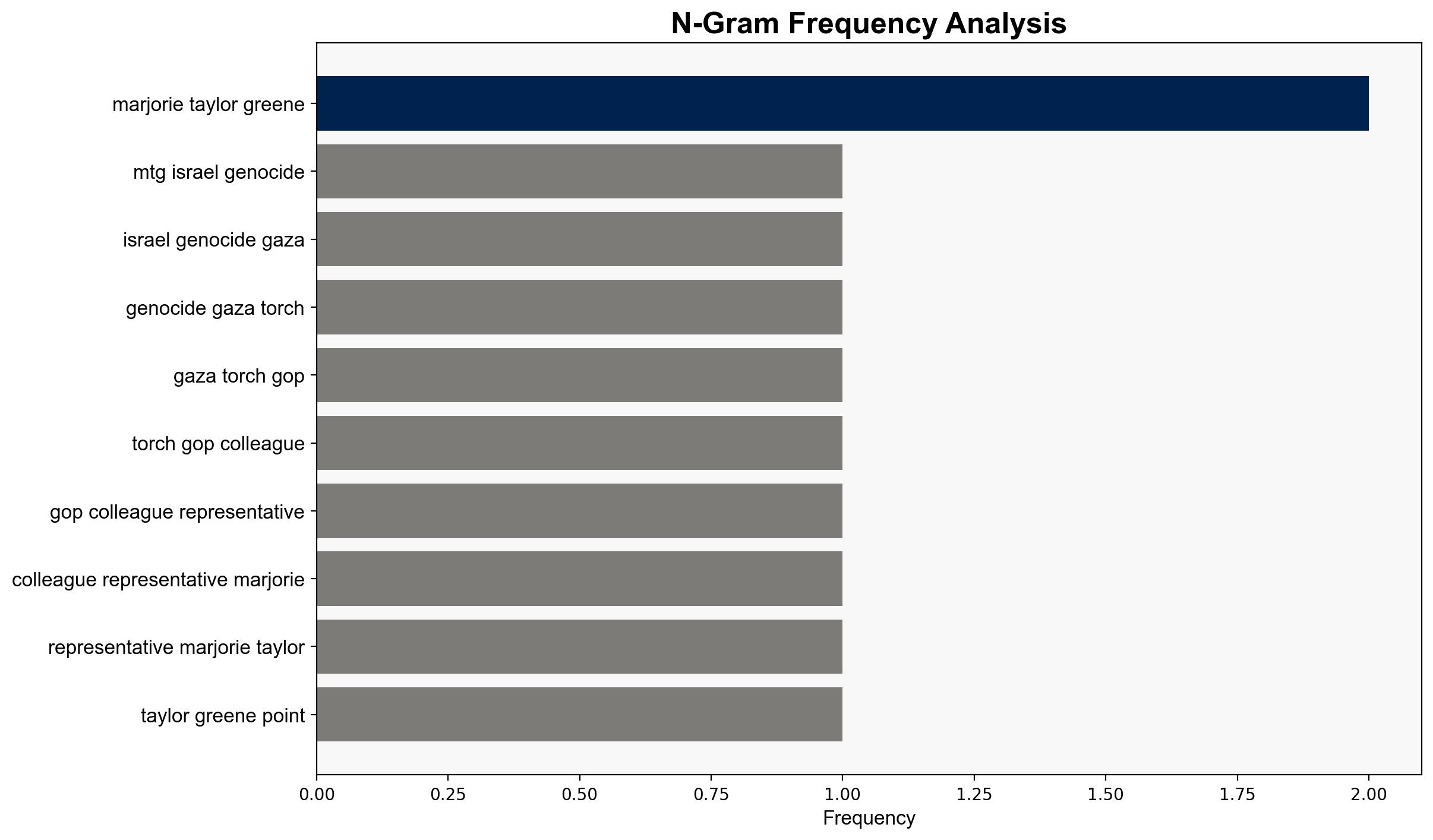MTG Torches Republican Colleague for Supporting Genocide in Gaza – The New Republic
Published on: 2025-07-29
Intelligence Report: MTG Torches Republican Colleague for Supporting Genocide in Gaza – The New Republic
1. BLUF (Bottom Line Up Front)
The analysis suggests a moderate confidence level that the primary motivation behind Marjorie Taylor Greene’s criticism of Randy Fine is a strategic repositioning within her political base, rather than a genuine shift in her stance on the Israeli-Palestinian conflict. The recommended action is to monitor Greene’s future statements and actions for consistency and potential shifts in policy alignment, which could indicate broader political trends or shifts within her support base.
2. Competing Hypotheses
1. **Hypothesis A**: Marjorie Taylor Greene’s criticism of Randy Fine reflects a genuine change in her stance on the Israeli-Palestinian conflict, driven by humanitarian concerns and pressure from progressive factions.
2. **Hypothesis B**: Greene’s statements are a strategic move to realign herself with a broader political base, potentially to mitigate previous criticisms and expand her support among moderate and progressive constituents.
Using the Analysis of Competing Hypotheses (ACH) 2.0, Hypothesis B is better supported. Greene’s past actions, such as her criticism of Palestinian protests and support for cutting funding to Israel, suggest a pattern of strategic positioning rather than a consistent ideological shift.
3. Key Assumptions and Red Flags
– **Assumptions**: Hypothesis A assumes Greene has undergone a genuine ideological transformation, while Hypothesis B assumes her actions are primarily politically motivated.
– **Red Flags**: Greene’s historical inconsistency on related issues raises questions about the sincerity of her current stance. The lack of a clear, consistent policy narrative from Greene is a potential indicator of strategic repositioning.
– **Blind Spots**: The analysis might overlook internal political dynamics within Greene’s constituency that could influence her public statements.
4. Implications and Strategic Risks
– **Political Risks**: Greene’s statements could polarize her support base, leading to potential fragmentation within her political faction.
– **Geopolitical Risks**: If Greene’s stance influences broader Republican policy, it could impact U.S.-Israel relations and the perception of U.S. foreign policy in the Middle East.
– **Psychological Risks**: Greene’s rhetoric may contribute to increased tensions and antisemitism, affecting social cohesion and public discourse.
5. Recommendations and Outlook
- Monitor Greene’s future statements and legislative actions for consistency and alignment with her current rhetoric.
- Engage with moderate and progressive factions to assess potential shifts in political alliances and voter sentiment.
- Scenario Projections:
- Best Case: Greene’s statements lead to constructive dialogue and policy reform within her party.
- Worst Case: Increased polarization and internal conflict within the Republican Party.
- Most Likely: Greene continues to navigate between ideological factions, maintaining her political relevance.
6. Key Individuals and Entities
– Marjorie Taylor Greene
– Randy Fine
– Amnesty International
– B’Tselem
7. Thematic Tags
national security threats, geopolitical dynamics, political strategy, Middle East relations





